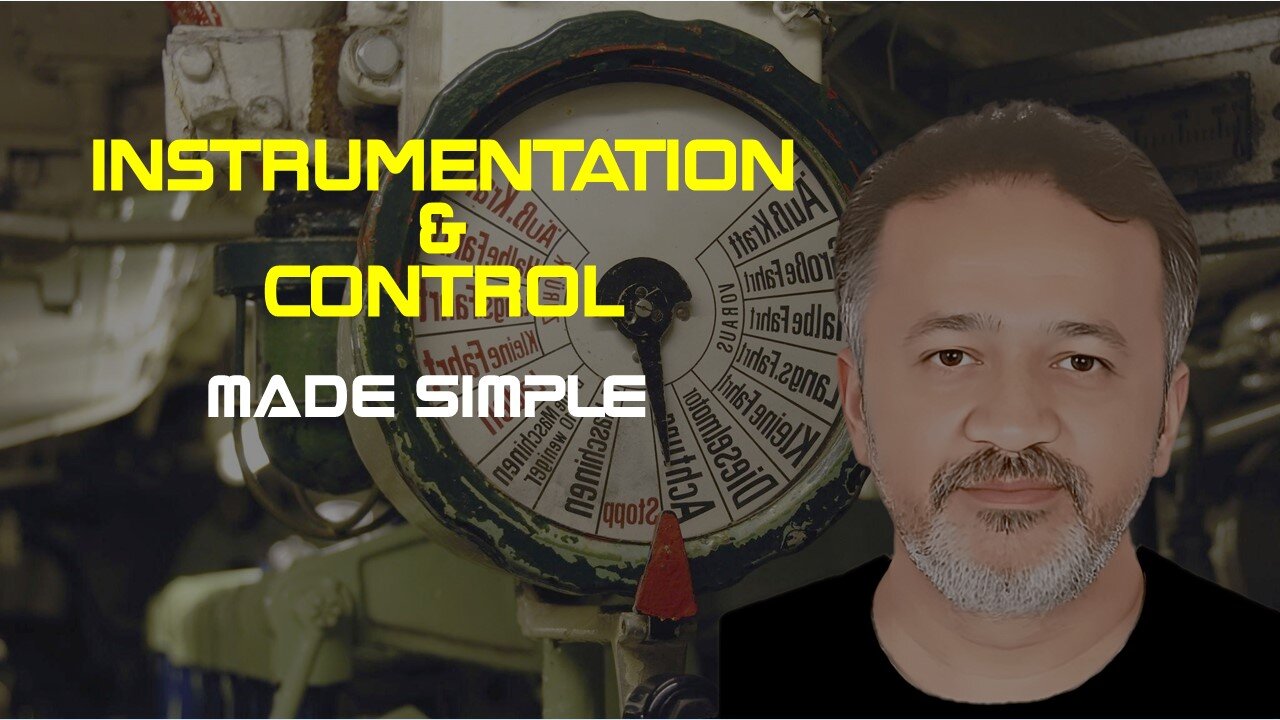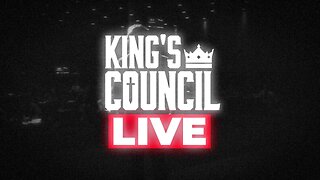Premium Only Content

Instrumentation & Control Demystified: Principles and Instrumentation Techniques
Instrumentation & Control (I&C) refers to the field of engineering that focuses on the measurement, control, and automation of industrial processes and systems. It involves the use of various instruments, sensors, controllers, and software to monitor, measure, and regulate physical parameters within a system.
The primary objective of instrumentation and control is to ensure the safe, reliable, and efficient operation of industrial processes. It involves gathering accurate data about process variables such as temperature, pressure, flow rate, level, and composition. This data is then used to make informed decisions and control the process to achieve desired outcomes.
Instruments and sensors play a crucial role in instrumentation and control. They are used to measure physical quantities and convert them into electrical signals that can be processed and analyzed. Examples of instruments and sensors commonly used in I&C include temperature sensors, pressure transmitters, flow meters, level sensors, analyzers, and actuators.
Control systems are another integral component of I&C. These systems use the data obtained from sensors to adjust and regulate the process variables in real-time. They employ controllers, such as programmable logic controllers (PLCs) or distributed control systems (DCS), to execute control strategies and maintain desired operating conditions. Control systems can be implemented using various techniques, including feedback control, cascade control, and advanced control algorithms.
Instrumentation and control find application across various industries, including oil and gas, chemical processing, power generation, manufacturing, water treatment, and more. They are vital for process optimization, improving efficiency, enhancing safety, and reducing human intervention in critical operations.
Advancements in automation and digital technologies have led to the emergence of smart instrumentation and control systems. These systems integrate sensors, data communication networks, and software to enable remote monitoring, predictive maintenance, and advanced analytics for improved process control and decision-making.
In summary, Instrumentation & Control is a multidisciplinary field that combines engineering, physics, and computer science principles to monitor, measure, and control industrial processes. It plays a crucial role in ensuring the efficient and safe operation of various systems, contributing to increased productivity, reduced downtime, and enhanced overall performance.
-
 12:56
12:56
Dr. Nick Zyrowski
8 days agoFasting Is THE Cure: No Food For 2 Days Is The Perfect Fast! (Here’s Why)
6.3K4 -
![MAHA News [10.10]: Cannabis Reform, Kennedy Exposes "Vaccines Saved Lives", An Inconvenient Study](https://1a-1791.com/video/fwe2/09/s8/1/-/k/v/p/-kvpz.0kob-small-MAHA-News-10.10.jpg) LIVE
LIVE
Badlands Media
17 hours agoMAHA News [10.10]: Cannabis Reform, Kennedy Exposes "Vaccines Saved Lives", An Inconvenient Study
483 watching -
 1:51:23
1:51:23
The Quartering
5 hours agoTrump Snub Backfires, Matt Walsh Sounds The Alarm, Candace Owens Theory On Charlie Kirk
104K46 -
 LIVE
LIVE
Owen Shroyer
1 hour agoOwen Report - 10-10-2025 - Qatari Airbase In America Angers Israeli Lobby
1,250 watching -
 1:14:53
1:14:53
DeVory Darkins
5 hours ago $14.74 earnedDemocrat Candidate leaves crowd DUMBFOUNDED as Trump scores MAJOR VICTORY
67.7K23 -
 1:12:16
1:12:16
Sean Unpaved
5 hours agoTNF Shocker: Giants Stomp Eagles, Cubs Claw a Game 5, Weekend NFL/CFB Best Bets!
29K7 -
 1:25:05
1:25:05
HotZone
9 hours ago $3.21 earned5 Signs Terrorists are Plotting a Massive US Strike
17.7K12 -
 1:05:42
1:05:42
Dear America
5 hours agoShould Christians Celebrate Halloween?
30.6K16 -
 2:03:24
2:03:24
The Culture War with Tim Pool
6 hours agoAntifa Is A Terror Organization, Crackdown Coming As Leftists Defend Violence | The Culture War
179K169 -
 28:39
28:39
Afshin Rattansi's Going Underground
5 days agoThe Trump Plan to Save US Economic Hegemony You Haven’t Heard Of (Jim Rickards)
37.6K3